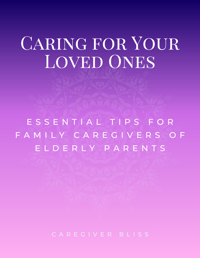As our parents grow older, we often find ourselves in situations where their health becomes a concern. Sometimes, it becomes necessary to take them to the hospital for medical attention. However, what do you do when your elderly parent adamantly refuses to go to the hospital?
In this article, we'll explore the reasons behind their reluctance and discuss some strategies to help you navigate this challenging situation.
Understanding Their Concerns
Before diving into solutions, it's crucial to understand why your elderly parent may be hesitant about going to the hospital. Some common concerns include:
- Fear of the Unknown: Hospitals can be intimidating places for anyone, but they can be especially daunting for the elderly, who may not be familiar with modern medical procedures.
- Loss of Independence: Many seniors fear that going to the hospital means losing their independence. They may worry about being confined to a hospital bed or having others make decisions for them.
- Cost: Medical bills can be a significant source of stress for seniors. Even with insurance, there can be out-of-pocket expenses that they are concerned about.
- Previous Negative Experiences: Past hospital visits that were unpleasant or traumatic can lead to a strong aversion to returning.
- Cultural or Religious Beliefs: Some elderly individuals may have cultural or religious beliefs that influence their decisions about healthcare.
- Lack of Trust: Your parent might not trust the medical system or healthcare professionals, making them skeptical about the necessity of hospitalization.
Respect Their Autonomy
It's essential to respect your elderly parent's autonomy and involve them in the decision-making process. Here are some tips to consider:
- Open Communication: Have an open and honest conversation with your parent about their concerns. Listen carefully and validate their feelings.
- Educate and Inform: Provide information about the medical condition and why the hospital visit is necessary. Sometimes, knowing more about the situation can alleviate their fears.
- Involve Their Doctor: Encourage your parent to discuss their concerns with their healthcare provider. Doctors can often address specific medical worries and offer reassurance.
- Explore Alternatives: If possible, explore alternative options that may allow your parent to receive care at home or in a less intimidating setting. Discuss these possibilities with their healthcare team.
- Offer Emotional Support: Reassure your parent that you'll be there with them every step of the way. Emotional support can go a long way in reducing their anxiety.
Seek a Second Opinion
In some cases, it may be beneficial to seek a second medical opinion. If your parent is skeptical about the necessity of hospitalization, another doctor's perspective may help clarify the situation.
Consider Legal Documents
If your parent's refusal to go to the hospital poses a severe risk to their health and they are not mentally competent to make medical decisions, you may need to explore legal options, such as obtaining guardianship or power of attorney. These steps should only be taken as a last resort and with careful consideration.
Conclusion
When your elderly parent doesn't want to go to the hospital, it can be a challenging and emotionally charged situation. Understanding their concerns, respecting their autonomy, and seeking open communication are essential steps to help them make the right decision for their health. Remember that it's crucial to approach the situation with empathy and patience, as their well-being should always be the top priority.
We hope you found this article helpful in navigating the difficult situation of an elderly parent refusing hospital care. We would love to hear your thoughts and experiences. Please share your comments and insights below to contribute to the ongoing discussion on this important topic.
Free Guide:
Caring For Your Loved Ones
 Attention family caregivers! Are you struggling to provide the best care for your aging parents? Don't worry, we've got you covered.
Attention family caregivers! Are you struggling to provide the best care for your aging parents? Don't worry, we've got you covered.
Download our free guide, Caring for Your Loved Ones: 10 Essential Tips for Family Caregivers of Elderly Parents, and unlock the secrets to becoming an exceptional caregiver.
From adapting the home environment to promoting independence, this invaluable resource will transform your caregiving experience into a more rewarding journey. Don't wait—give your loved ones the care they deserve, and download your free copy today!

